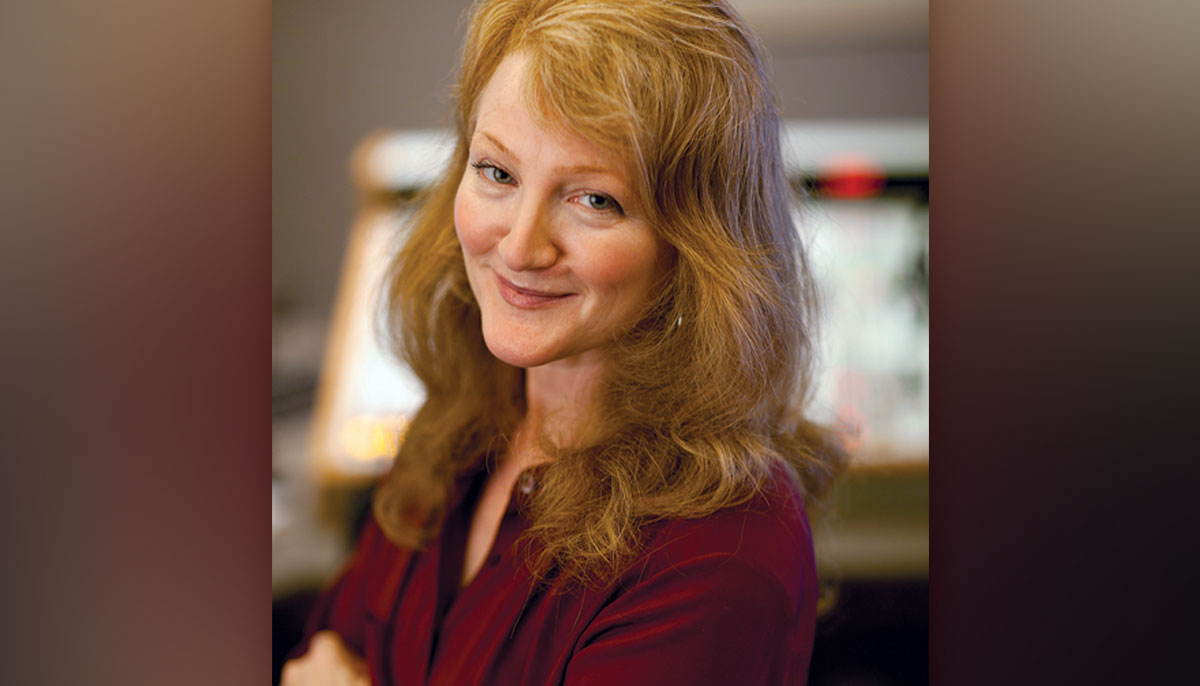What made the news yesterday and today, what trended twenty minutes ago, tells of disarray and despair and destruction—of suffering and mindlessness heaped upon each other. That is part of the story of our time. But it is not the whole story of our time. There is also the generative possibility of our time—of compassion and healing and collective awakening. This too is happening all around us, but my fellow journalists do not shine the bright light on it. Those of us who see it must participate in and nourish it.
In the last few centuries, we began to consign spiritual life to a compartment labeled “private.” We placed more and more of our collective faith in the large, loud, external pursuits of politics and economics. One appeal of these disciplines—to which we attached descriptors like “serious” and “hard”—was their certainty that irrational human tendencies could be controlled by rational forms.
Now, on the shaky ground of this early century, politics and economics have become the thinnest of veneers over the inner human drama of dreams and desires, pain, and fear. It is becoming ever clearer that the complex reality of human nature is the hardest and most serious business of all. So many advances we believed in are fragile because, amid all the outer changes, we did not change ourselves.
I am suffering, so is everyone else, and we have to work directly with that. The Buddha saw, named, and investigated this underlying truth of life. Across the millennia, human beings have chosen to grapple with the revelations this truth presents—or to turn away. In our time, brilliant young technologies act like extensions of our brains and bodies and give us, among other things, new and shiny means to turn away. Yet these same technologies have connected our minds and lives, and so made my suffering and yours, and the well-being of all life and the planet that nourishes it, utterly inextricable.
I sense that behind the question that has been posed here—what message Buddhism can offer in coming decades—is a noble desire to do “more.” I believe that “more” will flow naturally if the magnificent traditions of Buddhism, with which I converse as a delighted guest, student, and companion—are shared more boldly and expansively, in their full complexity and depth. The spiritual technologies of meditation and mindfulness are just when we need them most. But they’ve been imparted in many ways that arrived detached from their own deep roots. The world is ready to benefit from the wisdom in that rich soil.
The insights of Buddhist psychology have been a window into this for me. I have come to treasure it as a tremendous gift for seeing and diagnosing what ails us. Buddhist psychology offers seeds and tools for the fresh start our species needs to wake up and grow up. Sitting with, letting everything arise, allowing discomfort—these are spiritual and moral muscles for the work of being curious about, and gently mistrusting, that exhilarating feeling when suffering hardens into hatefulness and feels momentarily like power.
For we do not know how to sit with, or stand before, the pain, fear, and suffering now in the middle of our life together so that they have a chance to soften. We do not know how to greet them as part of our wholeness and as a potential source of compassion.
We have actively taught ourselves and our children to fight for beliefs and identities. This has had an unintended effect of orienting us—and our entire culture—toward what we must resist and overcome. We are skilled at taking refuge in outrage. This too is called “strong.”
While there is certainly a place for all of this in a moral life, its intention and effect are radically different from the calling of being a warrior in the Buddhist sense. The “humble warrior,” the “fierce bodhisattva”: these seem like contradictions in terms, a counterintuitive merger of power and tenderness. Yet this is the only way I know to describe the embodied presence of the wisest people I’ve been privileged to draw out in conversation. I’d begin my list with His Holiness the Dalai Lama, his friend Archbishop Desmond Tutu, and go from there.
Buddhist analysis of the human predicament has become a pointer as I seek to navigate this moment we inhabit with clarity, equanimity, and grace. I often share its insights and vocabulary with others, though I am no Buddhist teacher, and I have watched them instantaneously unlock energy and presence.
The Buddhist concept of “near enemies” to the great virtues is exquisitely helpful in grasping why, as we are deluged by images of violence and despair, the sorrow and pity that feel like humane responses actually paralyze us and lead us astray from the compassion that would help us remain present.
The word metta, loving-kindness, adds psychological acuity to the range of teachings about love that humanity possesses. It richly complements the fresh challenge alive in our midst to make love something muscular, practical, and public. With distinctive pragmatism, it gently points us back to the foundational truth modernity tried to forget: that inner life and outer presence in the world are intertwined, whether we want that to be true or not. They are companions toward wholeness.
What I’m describing here is quiet work, breath to breath to breath, life to life to life. But I don’t think the civilizational potential of Buddhism’s teaching and modeling in the years ahead can be overstated. Other centuries, including the one in which the Buddha was born, have held vast brutality and dangers, yet the challenges before ours may be existential for our species.
On the upside of all that vexes us, we are the first generation with the tools to think and act together as a species. This will require us to claim the full intelligence, consciousness, and wisdom within our grasp. If in the end we recover the nobility and humility that this moment demands, the beautiful tradition of Buddhism that came into the world three millennia ago will have been pivotal.
Read the rest of the series, “Buddhism’s Next 40 Years: What’s the Message”.

